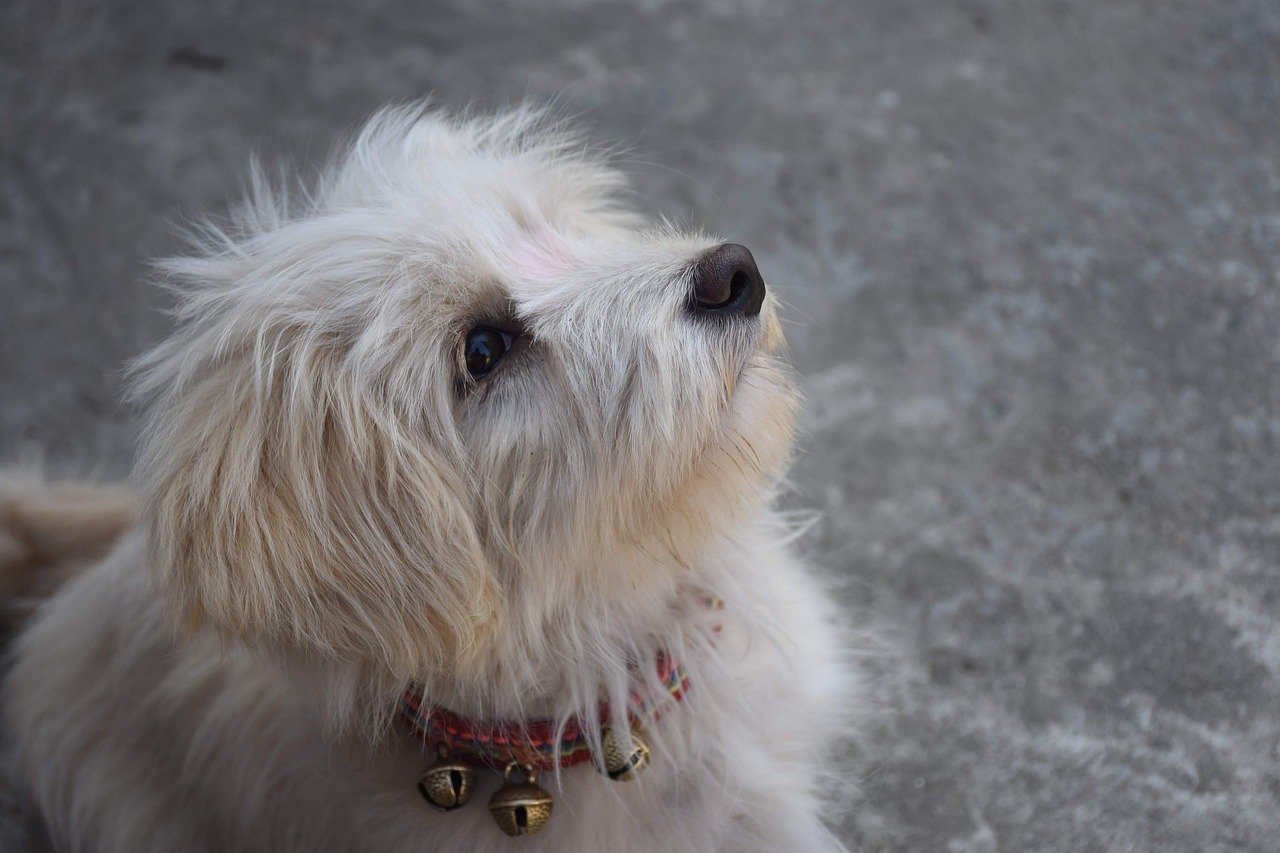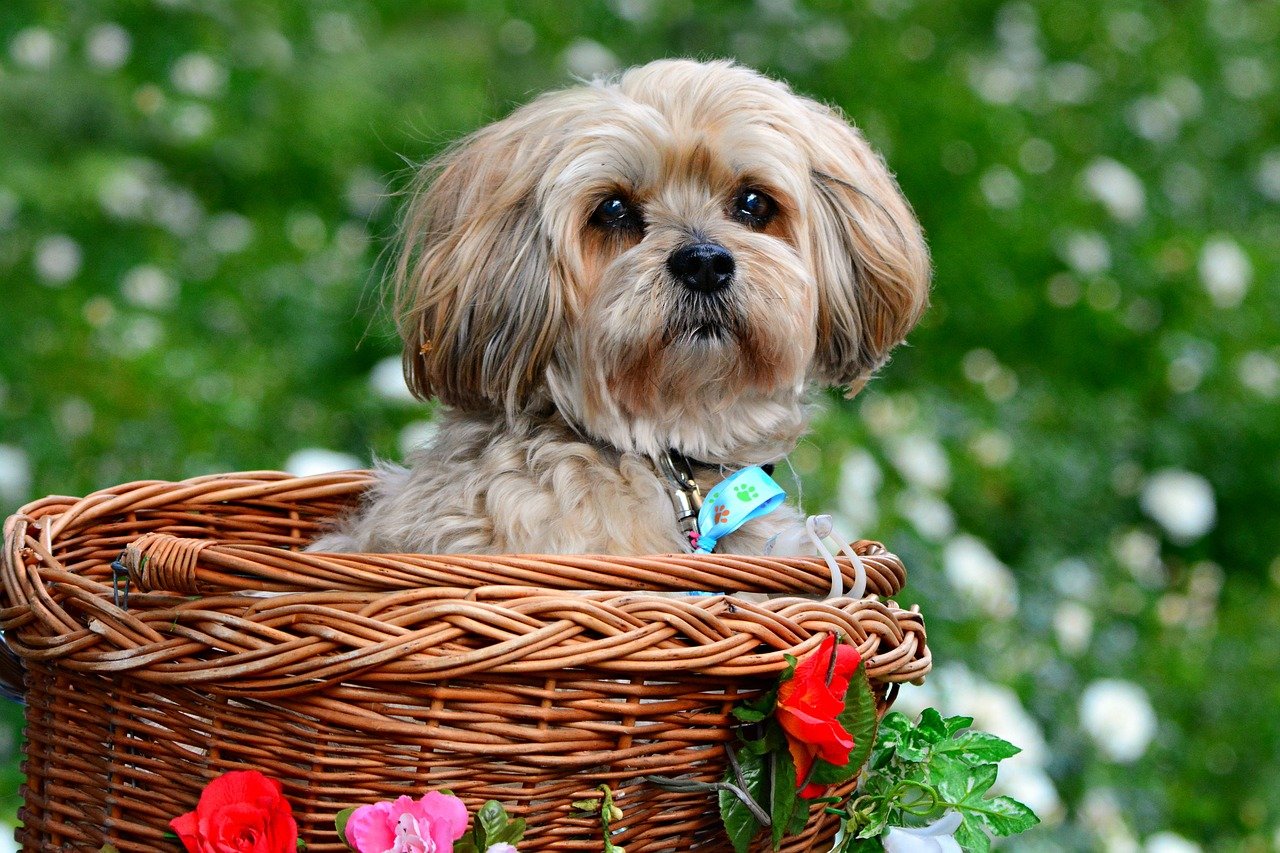There’s something undeniably magical about the Lhasa Apso. With their soulful eyes, flowing coats, and spirited personalities, these little dogs have a way of capturing hearts and never letting go. But loving a Lhasa Apso means more than just cuddles and play—it’s a commitment to their well-being every single day. Did you know that these ancient Tibetan dogs were once revered as guardians in monasteries, believed to bring good luck and protection? Today, they rely on us for care, affection, and understanding. If you want your Lhasa Apso to thrive, there are some essential steps you must follow. Let’s dive into the world of Lhasa Apso care and discover how to keep your precious companion healthy and truly happy.
Feed a Balanced and Nutritious Diet

With their luxurious coats, spirited personalities, and ancient roots as sentinel dogs in Tibetan monasteries, Lhasa Apsos are more than just adorable companions—they’re fiercely loyal and full of character. But beneath their bold charm lies a breed with specific needs when it comes to health, grooming, and emotional well-being. Whether you’re a new Lhasa Apso parent or have shared years with your little lion dog, understanding what keeps them thriving is key to a long, joyful life together.
The foundation of your Lhasa Apso’s health starts with what goes into their bowl. These dogs have a sensitive digestive system, which means you should choose high-quality foods that suit their needs. Look for kibble or wet food made especially for small breeds, ensuring it’s rich in protein and moderate in fat. Avoid fillers like corn and soy, as these can irritate their stomach. Some Lhasa Apsos thrive on a mix of dry and wet food, or even carefully prepared home-cooked meals. If you’re ever unsure, ask your veterinarian for guidance. Remember, treats are wonderful for training, but too many can lead to weight gain. Always keep fresh water available, and never underestimate the power of a healthy meal to keep your furry friend’s tail wagging.
Keep Up With Regular Grooming

A Lhasa Apso’s gorgeous coat is both a blessing and a challenge. Their long, silky fur can become tangled and matted if not brushed daily. Make grooming a bonding time—use a gentle brush and be patient around sensitive areas like behind the ears and under the legs. Regular bathing every few weeks keeps their coat shiny and skin healthy, but use only shampoos made for dogs to avoid irritation. Don’t forget to trim their nails, clean their ears, and check for any signs of fleas or ticks. If the coat becomes too much to handle, professional groomers can help. A well-groomed Lhasa Apso not only looks stunning but feels more comfortable and confident.
Ensure Regular Veterinary Checkups

Just like people, Lhasa Apsos need regular medical care to stay healthy. Schedule annual wellness checks with your veterinarian, and never skip vaccinations or parasite prevention. These little dogs can be prone to genetic issues like hip dysplasia, eye conditions, and allergies, so early detection is crucial. Your vet can also provide advice on dental care, as Lhasa Apsos often have crowded teeth that need extra attention. If you notice any changes in behavior, appetite, or energy, don’t wait—early intervention can make all the difference. These visits are about more than just shots; they help catch small problems before they become big ones.
Provide Daily Exercise and Playtime

Don’t be fooled by their luxurious coats—Lhasa Apsos love to play! While they don’t require marathon runs, these dogs benefit from daily walks and lively indoor games. A couple of short walks each day, combined with playtime like fetch or tug-of-war, keeps them active and prevents boredom. They’re clever and curious, so puzzle toys and scent games are a great way to challenge their minds. Exercise also helps prevent obesity, which is a real risk for this breed. Try to make playtime a family affair—Lhasa Apsos thrive when they’re included in the fun. A happy, tired pup is far less likely to become destructive or anxious.
Practice Consistent Training and Socialization

Lhasa Apsos are smart and independent, sometimes even a little stubborn. Early training is essential to help them become well-behaved companions. Use positive reinforcement like treats and praise—these dogs respond best to gentle, consistent guidance. Socialization is equally important, as Lhasa Apsos can be wary of strangers or new situations. Introduce them to different people, dogs, and environments from a young age. Puppy classes are a fantastic way to build confidence and teach good manners. Remember, patience is key; every dog learns at their own pace. A well-trained Lhasa Apso is a joy to be around and feels more secure in the world.
Maintain Dental Health
Dental care is often overlooked, but for Lhasa Apsos, it’s absolutely vital. Their small mouths can lead to overcrowded teeth, which means more places for plaque and tartar to hide. Brush your dog’s teeth several times a week with a canine toothbrush and toothpaste. Dental chews or toys can also help scrub away buildup. Watch for warning signs like bad breath, red gums, or difficulty eating. These could indicate dental disease, which can lead to bigger health problems if left untreated. Regular professional cleanings by your vet are sometimes needed. A healthy mouth means a happier, more energetic Lhasa Apso.
Watch for Signs of Illness and Allergies
Lhasa Apsos are generally hardy, but they’re not immune to illness. Keep an eye out for symptoms like itching, redness, coughing, or sudden changes in appetite. Skin allergies are not uncommon, often showing up as constant scratching or licking. They can also develop eye problems, so look for signs of discharge or cloudiness. If your dog seems listless or is acting out of character, don’t ignore it. Quick action can prevent minor issues from becoming major ones. Knowing your Lhasa Apso’s normal behavior makes it easier to spot when something’s wrong.
Create a Safe and Stimulating Home Environment

Your Lhasa Apso’s happiness depends a lot on their surroundings. Make sure their living space is comfortable, safe, and free from hazards like exposed wires or small objects that could be swallowed. Provide a cozy bed in a quiet corner for naps, and let them have access to toys that stimulate their mind. Lhasa Apsos love to watch the world, so a window perch can be a favorite spot. Keep your home calm and predictable—these dogs do best with routines. They’re sensitive to loud noises and chaos, so a peaceful environment helps them feel secure and loved.
Offer Plenty of Affection and Companionship
Lhasa Apsos may have a reputation for being independent, but they crave love and attention from their people. Make time every day for cuddles, gentle petting, and quiet moments together. Speak to them often—your voice is reassuring and comforting. These dogs form strong bonds and can become anxious if left alone for long periods. If you’re away often, consider a companion animal or a trusted pet sitter. Remember, your presence is the greatest gift you can give. A Lhasa Apso who feels loved and secure will return that affection tenfold.
Understand Their Unique Personality

Every Lhasa Apso is a world unto themselves. They are famous for their quirky, sometimes comical personalities. Some are playful clowns, while others are dignified and aloof. Take the time to learn what makes your dog tick—do they love squeaky toys, or would they rather snuggle on your lap? Respect their boundaries, and never force them into situations that make them uncomfortable. Celebrate their quirks, and let them show you how they like to be loved. The more you understand your Lhasa Apso, the stronger your bond will become.
What will you do today to make your Lhasa Apso’s tail wag a little harder?

Born and bred in South Africa, a Capetonian at heart. Amy-Leigh’s love for nature and animals was inherited from her Dad. He loves taking the family on road trips to experience nature at its finest; Amy-Leigh’s favourite being whale watching in Hermanus and spotting Kudu along the West Coast. Amy-Leigh holds a BA in English Literature and Communication Studies.






